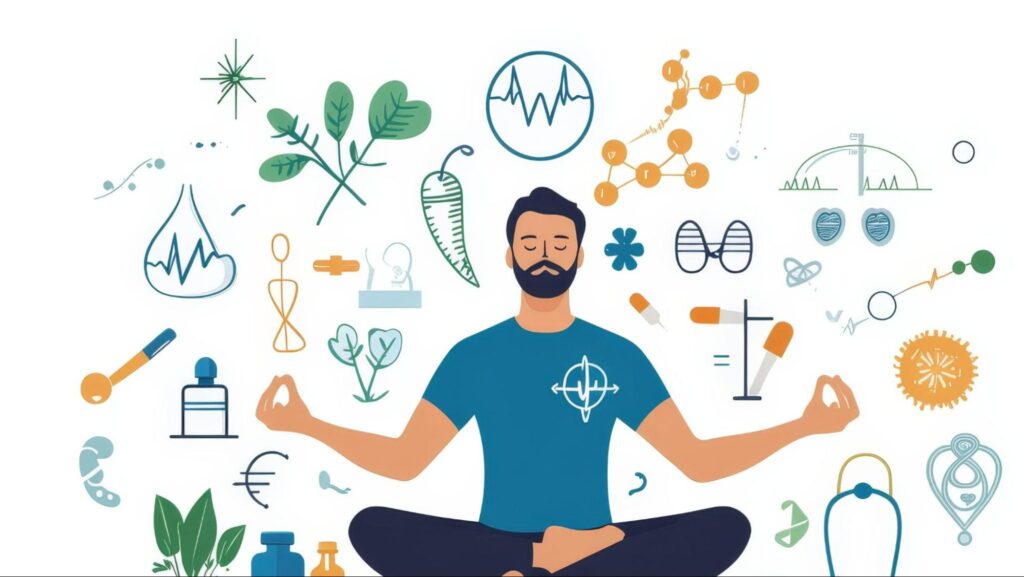Cocaine addiction is a complex and multifaceted condition that affects millions of individuals worldwide. It’s not merely a physical dependence on an addictive drug but also a disorder that impacts mental health, relationships, and overall well-being. Traditional methods of treatment for cocaine addiction often focus on addressing the physical symptoms of withdrawal and dependence.
However, a growing body of evidence suggests that holistic approaches, which consider the whole person—mind, body, and spirit—are far more effective in achieving long-term recovery. This article explores why holistic methods are gaining traction in the field of cocaine addiction treatment and how they contribute to a successful recovery. Keep reading to learn more.
The Limitations of Traditional Approaches
While traditional treatments for cocaine dependence, such as medication management services and cognitive-behavioral therapy, have helped reduce cravings and manage withdrawal symptoms, many are unable to address the underlying causes of addiction effectively. Cocaine use disorder is frequently accompanied by co-occurring mental health problems, which can exacerbate addictive behavior. Without addressing these root issues, the likelihood of relapse remains high.
This is where a cocaine addiction treatment centre that employs a holistic approach can make a significant difference. By integrating a wide range of therapies—from individual therapy and family therapy sessions to experiential therapies like music therapy—these centers provide comprehensive care that addresses the various health aspects affected by addiction.
What Do Holistic Treatment Programs Entail?
Holistic treatment programs aim to address the various aspects of an individual’s well-being. Here’s what they typically entail:
1. Therapeutic Interventions
Individual and group therapy sessions are used to address underlying emotional and psychological issues. Evidence-based therapies like cognitive-behavioral therapy (CBT) and dialectical behavior therapy (DBT) are commonly incorporated to help patients disrupt negative thought patterns and learn healthier coping mechanisms.
2. Physical Wellness
Nutritional counseling is provided to improve diet and support physical health. Exercise programs enhance physical strength and reduce stress. Medical care, including detoxification and medication management, is also available when needed.
3. Mindfulness and Stress Reduction
Meditation and mindfulness practices are introduced to help individuals stay present and manage stress. Then, patients also learn breathing exercises and relaxation techniques to promote calm and emotional balance.
4. Alternative Therapies
Patients can have access to acupuncture, massage therapy, or chiropractic care to alleviate physical discomfort and improve energy flow. They can also explore creative therapies, such as art therapy, music therapy, or equine therapy, to encourage emotional healing and self-expression.
5. Spiritual Growth
Patients in holistic treatment centers can join activities like guided meditation, nature walks, or spiritual counseling that foster spiritual exploration.
These practices are tailored to align with an individual’s beliefs, whether through organized religion or personal spirituality.
6. Lifestyle and Life Skills Training
Workshops on stress management, time management, and healthy communication are offered to equip individuals with practical skills. Education on building healthy routines and maintaining work-life balance is also a key component.
7. Community and Social Support
Group activities and peer support help build connections and reduce feelings of isolation. Family therapy is often included to repair relationships and strengthen support systems.
8. Holistic Education
Individuals are taught about the mind-body connection and how lifestyle choices impact overall health. The program encourages self-care practices that promote long-term well-being and resilience.
By integrating these diverse elements, holistic treatment programs aim to heal the whole person. This approach helps individuals develop the tools and resilience needed for sustained recovery and a balanced, fulfilling life.
The Importance of Individualized Treatment Plans
One key strength of holistic approaches is their emphasis on individualized treatment plans. No two individuals experience addiction in the same way, and a one-size-fits-all approach is rarely practical. A comprehensive care plan might include a combination of residential treatment programs, partial hospitalization programs, and aftercare services tailored to each person’s unique needs.
For example, some patients may benefit from medications like modafinil or topiramate, which have shown promise in reducing cravings and attenuating the effects of cocaine. Others may find relief through experiential therapies or participation in a 12-step program like Cocaine Anonymous.
Building a Brighter Future
Holistic approaches to cocaine addiction treatment recognize that recovery is not just about achieving abstinence from cocaine but also about creating a fulfilling and meaningful life. This often involves addressing issues like chemical dependency, rebuilding relationships, and developing healthy coping mechanisms.

Aftercare plans, which may include ongoing therapy, support groups, and lifestyle changes, play a crucial role in maintaining long-term recovery. By advocating for an atmosphere of dignity and respect, holistic treatment programs empower individuals to take control of their lives and build a brighter future.
Conclusion
The path toward recovery from cocaine addiction may have several challenges, but holistic approaches offer compassionate and practical solutions. By addressing the physical, emotional, and psychological aspects of addiction, these methods provide a comprehensive framework for healing. Whether through behavioral therapies, family sessions, or innovative treatments like music therapy, holistic programs equip patients with the tools they need to quell cocaine dependence and achieve lasting recovery.
If you or a loved one is trying to heal from cocaine addiction, consider seeking help from a certified treatment center that embraces a holistic approach. With the proper support and treatment, recovery isn’t only possible but within reach.


